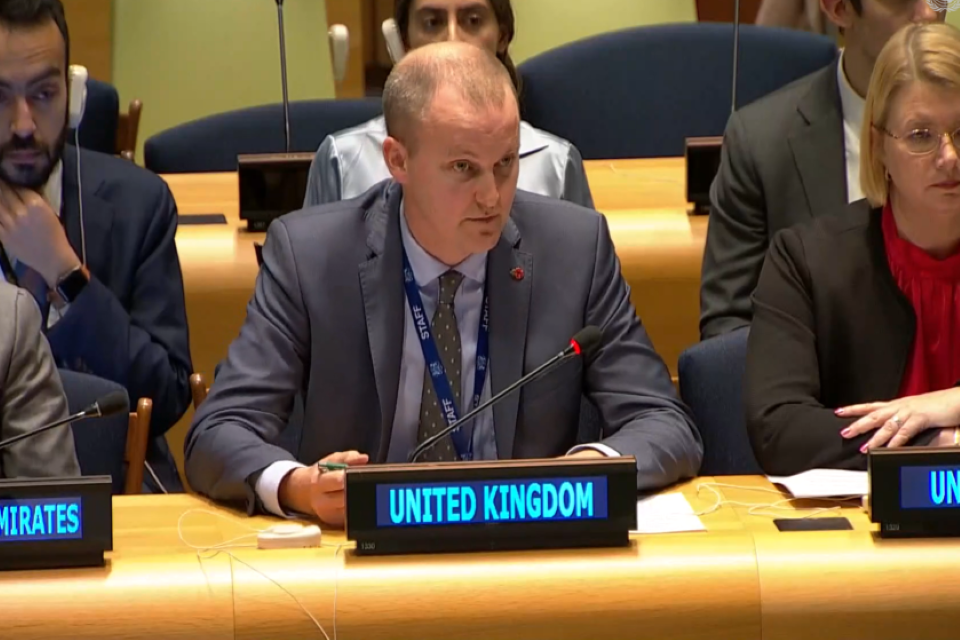A coherent and unified international response on Afghanistan is critically important
Statement by Fergus Eckersley, UK Political Coordinator at the UN, at the Security Council Arria formula meeting on Afghanistan

Thank you Ambassador, thank you for convening this session, and many thanks to the briefers for the really helpful and detailed presentations.
As we’ve heard, fifteen months on from the Taliban takeover, the situation in Afghanistan is critical. A harsh winter could cause levels of need not seen in decades. And widespread denial of fundamental human rights by the Taliban continues, including the systematic oppression of women and girls. The Taliban have not lived up to their commitments to the Afghan people.
Against this backdrop, a coherent and unified international response is critically important.
Our commitment is clear. The UK is the second largest donor to the UN’s Humanitarian Response plan. We are the second largest donor to the World Bank’s Afghanistan Reconstruction Fund. And we are leading efforts with the World Bank and others on economic stabilisation.
We have disbursed $319 million in humanitarian and development assistance last financial year – and committed a further $319 million this financial year. And we strongly support Security Council Resolution 2615, which ensures delivery of vital aid is not hindered by sanctions. But these efforts are in vain if the Taliban do not themselves ensure unhindered humanitarian access. We urge the Council to remain united in addressing these challenges, rather than feeding divisions.
We have heard again today calls from certain Council members for the immediate release of Afghanistan’s frozen assets. Let us be clear – to do so in the absence of an independent and autonomous central bank, with appropriate terrorist financing controls, would not be responsible.
Instead we should focus on supporting UN efforts to address the urgent humanitarian and economic crisis. The chronically underfunded Humanitarian Response Appeal is a good place to start - and we encourage all our international partners, including those looking to criticise the west, to focus first on making a contribution to this.
Mr Chair, we will continue to do all we can in support of the Afghan people. But our efforts can only go so far.
The last months have seen the Taliban implement draconian measures limiting women and girls’ freedom of movement and their access to jobs and services. Afghanistan remains the only country in the world where girls are barred from attending secondary school. The UAE Ambassador spoke very eloquently earlier about why these restrictions are so damaging. The human cost is stark. But so too is the economic one – As we’ve heard from the UNDP today, restricting women from the work force has already cost the Afghan economy up to 5% of GDP.
There has also been no serious effort towards inclusive governance, nor a genuine commitment to protect minorities. We are especially concerned at the risk of atrocity crimes against minorities such as the Hazara.
So the fundamental point is this: If the Taliban does not change its course – foremost on upholding human rights, and delivering on its counter-terrorism commitments - they will not deliver a stable and prosperous Afghanistan, and they will not gain legitimacy in the eyes of the Afghan people nor the international community.
Thank you.